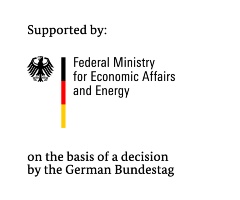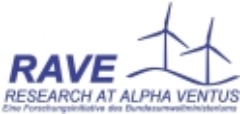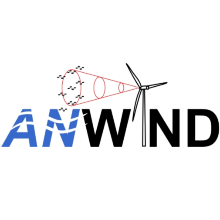

Content
Through a fundamental theoretical investigation into the wind field, application specific models are developed that allow an improved representation of wind field characteristics. In parallel, innovative measuring systems and methods are developed. By designing and testing a nacelle based lidar sensor system and novel UAV (Unmanned Aerial Vehicle) sensor networks, the wind field in front of the turbine is captured at high resolution both spatially and temporally. Furthermore, fiber optical sensors are utilized to capture the wind field within the rotor area. Based on thorough evaluations of the gathered data, the correlation between wind conditions and variances in plant specific parameters, like noise emissions or a plant’s power curve, are investigated. Finally, the extensive measuring campaigns of the ANWIND project, provide a foundation for the development and testing of diverse (feed forward) control concepts, which can help to optimize the supervisory control of wind turbines.
Organisation
Duration:
Januar 2016 to March 2020
Project coordination:
Stuttgart Wind Energy (SWE) - University of Stuttgart
Finance:
funded by german BMWi
with 1.650.465,00 € (for SWE)
- Development of new measurement devices and testing of new measurement techniques for sensing the wind field in front of and at the wind turbine
- Analyzing the influence of the wind field on the operation of the turbine through measurement campaigns
- Creating new knowledge about wind fields and their characteristics
- Testing of new control strategies using the new knowledge about wind fields and the newly developed measurement devices
Contact at SWE
Holger Fürst
M.Sc.Research Associate



